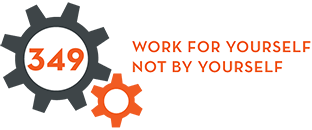Metrics, metrics metrics. While there’s one metric I can’t get enough of, the rest have been pissing me off for a while now. This growing wave of overreacting to data analysis needs to crest, we may be in a metrics bubble folks. I’ll differentiate between data and metrics. Except for the associated development and storage costs, collecting data is typically a good idea. You can rarely ‘go back in time’ to collect data that you failed to capture in the present.
“We have never had more data than we have now, yet have less predictability than ever.”, Antifragile
While I don’t believe in pure raw talent, I do believe in hustlers and the ability for individuals to succeed. That should be clear in how we’re building Startupify.Me and our focus on people not projects. I touched on the book The User Illusion last week and it’s premise of the powerful role the subconsciousness plays in talented individuals. There’s a reason Wayne Gretzky and Tom Brady can’t explain or document what they do. They’re not privy to it, they have no idea, it isn’t taking place in their consciousness. In the heat of a game, Tom Brady isn’t tracking hundreds of various stats in his head, stressing about them and how they relate. He’s hardly thinking consciously at all. In fact he’s likely worrying about his commute home or that phone call he had with his mom before the game.
 Clearly stats, metrics etc play a massive role in modern sports but not for the great athletes in the heat of the battle. Yes athletes review them, see reports and if it’s a contract year, they’ll likely pay more attention but stats are for sportscasters, fantasy sports stars, armchair quarterbacks and team administration. Stats are for the nerds like myself who can’t actually play.
Clearly stats, metrics etc play a massive role in modern sports but not for the great athletes in the heat of the battle. Yes athletes review them, see reports and if it’s a contract year, they’ll likely pay more attention but stats are for sportscasters, fantasy sports stars, armchair quarterbacks and team administration. Stats are for the nerds like myself who can’t actually play.
Let’s think about this in reverse. If you forced Tom Brady to hold a set of useless metrics in his head while playing the game, how would that impact his play? Could you negatively impact a great athlete by bombarding him with stats that are irrelevant to on field performance. You want an athlete to do, you want them to act. You may not understand how they do it but who cares? What’s important is that they do it, not that you understand it.
In The Invisible Gorilla they create experiments to do exactly this, have data distract you. An example they use is something as simple as crossing the street. Forcing people to pay attention to the colour of people’s eye coming the other way significantly increases your chance of being hit by a car.
“When you cross the street, you remove data, anything but the essential threat…..how many things one should disregard in order to act.”, Antifragile
Part of the challenge here is that becoming great at something creates an illusion in ourselves that it’s easy. It’s called automaticity, we’re built to make important things automatic. Our brain’s job is to remove data not add it.
“The more processing we can do in our unconscious minds, the better our chances of noticing that saber-toothed tiger lurking in the brush. It also creates a powerfully convincing illusion: a skill, once gained, feels utterly natural”, The Talent Code
It’s great to see others more experienced than myself like Dan Martell and Mike Litt discussing this. I don’t see this as an argument against metrics in anyway. What I’m suggesting is that, especially in the early stage, the Mike’s and Dan’s of our world need to be left alone. They can’t explain what they’re up to and that’s ok. Let them find the business and grow it, the metrics will come. In fact the metrics exist, they’re just locked away in Mike and Dan’s head right now and they’re changing hourly. In those early days you may just need to trust your gut.
“It’s not that we need to be ‘left alone’ it’s that asking us to talk about metrics is going to mislead an early stage audience into thinking that the metrics we track are the metrics that are important to their business.
My deck at Grow focused on the importance of utilizing gut-instinct driven decisions to get to and leverage the ever-elusive, “Product Market fit”. Cross the chasm, get beyond the crash of ineptitude and identify wiggles of hope by talking to customers on a daily, if not hourly basis.


 Most jobs allow you to be involved in one, maybe two of the above. Going it alone requires you to deliver and balance all of them. That is a
Most jobs allow you to be involved in one, maybe two of the above. Going it alone requires you to deliver and balance all of them. That is a 
 The freedom comes when you stop worrying about the end destination. I don’t need to worry about the end, I can focus solely on this next step and let my team handle the rest. It’s what makes team sports great, it’s what makes great teams successful. You have faith that your teammates will handle the next step. If every move you made in a hockey game required that you fully understand how the remainder of the play will unfold, you’d be paralysed. Instead you focus fully on the sole task of chipping the puck off the boards, that’s it. You have faith your teammate receiving it will do what’s right.
The freedom comes when you stop worrying about the end destination. I don’t need to worry about the end, I can focus solely on this next step and let my team handle the rest. It’s what makes team sports great, it’s what makes great teams successful. You have faith that your teammates will handle the next step. If every move you made in a hockey game required that you fully understand how the remainder of the play will unfold, you’d be paralysed. Instead you focus fully on the sole task of chipping the puck off the boards, that’s it. You have faith your teammate receiving it will do what’s right.